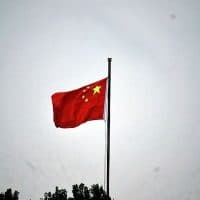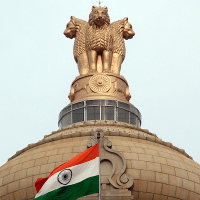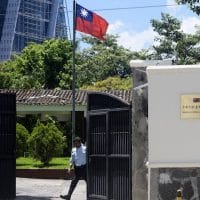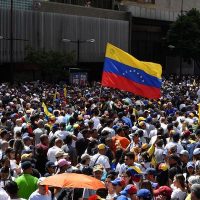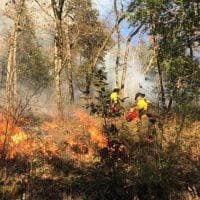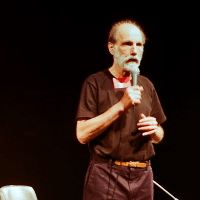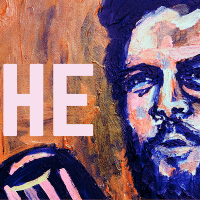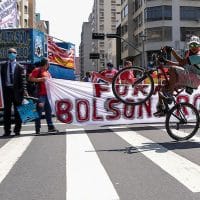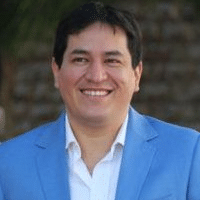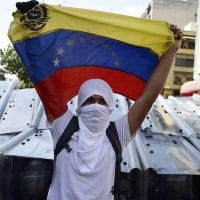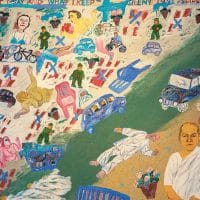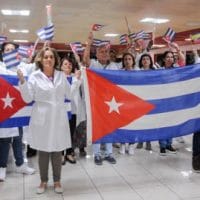-
China is working to expand its ties to Latin America
In mid-January 2020, 800 people gathered at Mexico’s Ministry of Economy to celebrate “China Day” with a seminar on Chinese-Mexican relations.
-
India’s move toward a de facto unitary state
India is being pushed toward a de facto unitary state, with states being kept totally out of the loop in decision-making, as seen in the new agricultural laws, goods and services tax compensation, Jammu and Kashmir bifurcation and new National Education Policy.
-
U.S. is doing its best to lock out China from Latin America and the Caribbean
Regional governments from both right and left see the BRI as lucrative and free of political interference.
-
How India’s Modi is changing laws to help imperialists dominate the country’s agriculture
The fact that the Center made unilateral and fundamental changes in agricultural marketing arrangements that fall within the State List of the Seventh Schedule of the Constitution was a blow against federalism.
-
How Venezuela has held back COVID-19 in spite of the U.S. sanctions stranglehold on its economy
A seam of cruelty runs through U.S. policy, which by its sanctions regime prevents Venezuela from open trade of its oil to import key medical equipment to help break the chain of the virus and heal those infected by it.
-
Policing the poor and minorities as counter-insurgency
Here are seven counterinsurgency features of policing and the inequities in the criminal justice system.
-
Indigenous solutions to California’s capitalist conflagrations
Colonial timber management and capitalist land use has produced the wildfire crisis we see today. Prescribed Indigenous burning is a viable preventative solution to high severity wildfire but its success hinges on the fight by Indigenous socialists and grassroots organizers for Tribal sovereignty, land restitution, and the creation of a new prescribed fire workforce.
-
Argentina’s veteran ambassador makes a stand for the sovereignty of Latin America
Alicia Castro does not shy away from her views. She came to diplomacy from the trade union movement, where she was a leader when she was a flight attendant with Aerolíneas Argentinas.
-
Normal is gone—where do we go from here?
Your parents at the dinner table laugh and say revolution will not happen in two months. You respond saying perhaps they are right—revolution may not occur in the next two months. But, as Che Guevara said, “the revolution is not an apple that falls when it is ripe. You have to make it fall.”
-
OPCW Syria whistleblower and ex-director attacked by U.S., UK, France at UN
Ian Henderson, a veteran OPCW inspector who challenged a cover-up of his organization’s investigation of an alleged chemical weapons attack in Syria, recently testified before the United Nations Security Council.
-
The political economy of intellectual property
The dramatic expansion of intellectual property rights represents a new stage in commodification that threatens to make virtually everything bad about capitalism even worse.
-
Venezuela’s ability to fight COVID-19 is badly hamstrung by the 31 metric tons of gold stolen from its treasury
On October 5, 2020, the England and Wales Court of Appeal overturned a lower court decision from July that denied the Venezuelan government access to 31 metric tons of its gold stored in the Bank of London.
-
Che
Twenty left publishers from around the world release a joint edition including two essential texts by Che Guevara on the fifty-third anniversary of his assassination by the CIA in Bolivia.
-
Why America’s economic war on China is failing
U.S. President Donald Trump—supported by most of the U.S. establishment—deepened the U.S. government’s assault on the Chinese economy.
-
Youth in Brazil’s peripheries in the era of CoronaShock
Across the world, youth have become important political actors, especially since the 1960s. Along with workers, women, and people of colour, youth have been main protagonists in the fight for national, anti-colonial, anti-imperialist liberation in Asia, Africa, and the Americas.
-
How Ecuador’s Democracy is being suffocated
Those polled said that Arauz was by far the most attractive candidate. But, if the ruling bloc in Ecuador has its way, Arauz will not be sworn in as the next president of the country next year. They will use every means to suffocate democracy in their country.
-
Colombia/U.S. Axis: Hitting at Venezuela
Secretary of State Michael Pompeo and Colombian President Ivan Duque, meeting in Bogota on September 20, talked about “managing the COVID-19 response … narcotraffickers … and [President] Maduro’s illegitimate regime,” according to the State Department.
-
Triple Crisis in the Anthropocene Ocean. Part Two: Running low on oxygen
Continuing Ian Angus’s examination of the ‘deadly trio’ of CO2-driven assaults on ocean life. Part two: The ocean is losing its breath.
-
Why Modi’s government is not up to the task
The Modi regime believes that no matter how impoverished the people are their electoral support can always be won by promoting Hindutva and effecting a communal polarization. It is an utterly cynical view, but then, the present dispensation represents the acme of cynicism.
-
Medical workers of conviction: Speaking to Cuban doctors who heal the world
The United States government has continued attacking Cuban medical internationalism right up to the current pandemic, making wild allegations against the program that disparage the medical workers.

